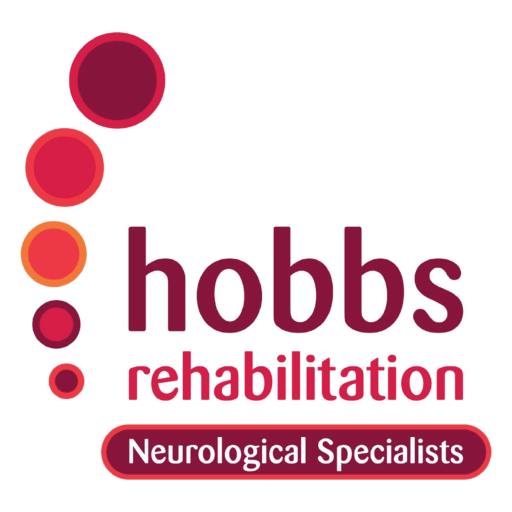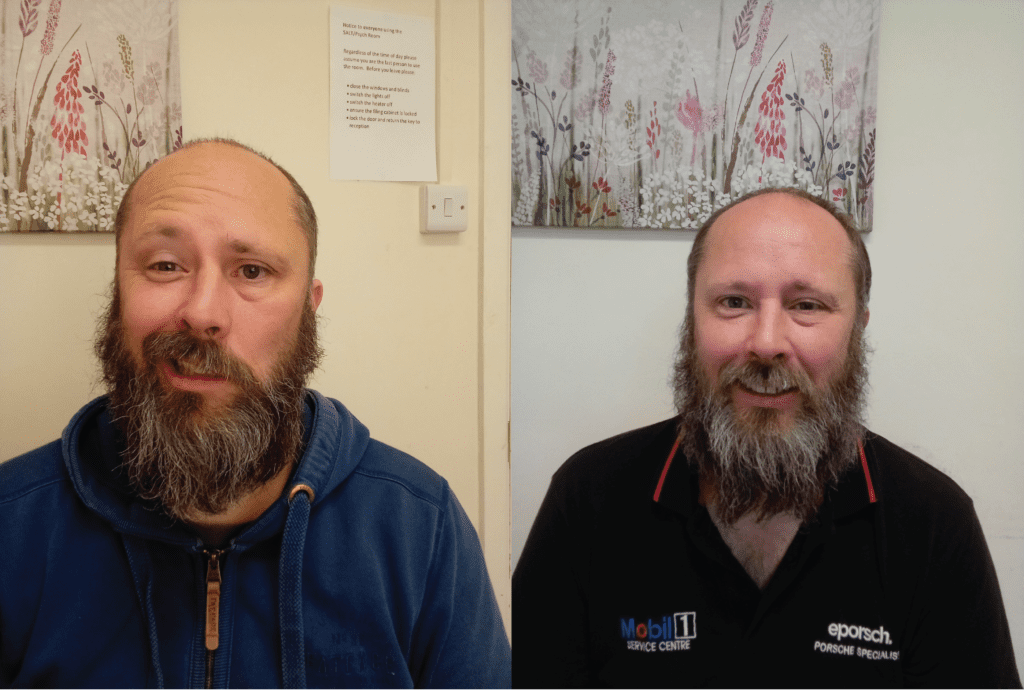In September 2021, Roly’s routine was abruptly disrupted when he noticed an unusual sensation on the left side of his face during his commute to work. His left eye refused to close completely, and the muscles on that side seemed to have lost their strength, rendering them almost non-functional. Concerned about the sudden onset of these symptoms and ruling out stroke-related signs, Roly quickly made his way to his local teaching hospital A&E. While waiting to be seen by a doctor, he delved into online research and recollected a rash that had appeared on his face a few weeks earlier. This brought Ramsay Hunt syndrome to his attention as a potential explanation. When he mentioned this suspicion to the attending physician, it became apparent that the doctor was unfamiliar with this syndrome. After enduring a lengthy 7-hour wait that included a battery of examinations, blood tests, and a scan, Roly was ultimately diagnosed with Bell’s Palsy. As part of his treatment, he was prescribed Prednisolone (steroids), provided with an eye patch, and given a regimen of eye drops to manage his condition.
Time only heightened Roly’s discomfort. Within the span of 24 hours, what had initially been a manageable challenge escalated into a frustrating ordeal. The prescribed eye drops, intended to alleviate his discomfort, fell short of expectations, forcing Roly to resort to taping his left eye shut during the day. Even simple outdoor activities became an arduous task due to the nagging discomfort. The thought of driving or maintaining his regular work routine seemed increasingly distant. As the days progressed, a persistent, dull ache set in on the paralysed side of Roly’s face and head, further hindering his ability to function normally. In an unexpected twist, the muscles on the unaffected side of his face began to exert more force, inadvertently pulling the paralysed side. This imbalance made speaking clearly and forming words an uphill battle, and even eating and drinking became intricate tasks. The initial two weeks of uncertainty and discomfort tested Roly’s patience and resilience.
Navigating the healthcare system proved to be another challenge in Roly’s journey. While seeking answers and effective treatment, he discovered that the NHS provided limited options for active intervention and follow-up care for those dealing with Bell’s Palsy and Ramsay Hunt syndrome. Appointments with medical professionals, including his own general practitioner, proved elusive, and the majority of doctors he consulted lacked specialised knowledge about these conditions. Roly’s quest for a definitive diagnosis and a structured treatment plan led him to an ENT consultant in November 2021. The consultant confirmed Ramsay Hunt syndrome and arranged for a CT scan. However, subsequent follow-up appointments were postponed, leaving Roly frustrated with what appeared to be a low-priority status for his condition within the NHS. Seeking support beyond traditional medical avenues, Roly turned to online resources, joining a Bell’s Palsy support group on Facebook and exploring various websites. It was during this online exploration that he stumbled upon Hobbs Rehabilitation…
From October 2021, Roly began attending regular sessions with Chrissy Bibby at Hobbs Rehabilitation, marking a turning point in his journey. Meeting someone who not only understood his condition but also possessed a wealth of experience with Bell’s Palsy and Ramsay Hunt syndrome was a reassuring and enlightening experience. Chrissy not only provided answers to his questions but also offered invaluable insights into the healing process that lay ahead. Within a few weeks of embarking on his rehabilitation journey, Roly started noticing incremental improvements. Chrissy introduced a series of targeted exercises involving massage and stretching, designed to facilitate the return of normalcy to his nerves and muscles. With each visit to Hobbs Rehabilitation, Roly’s progress was meticulously assessed, serving as a source of both motivation and encouragement. In contrast to his encounters with traditional medical settings, Roly found the atmosphere at Hobbs Rehabilitation to be markedly different. His sessions were characterised by unhurried discussions, affording him ample time to address his concerns and queries. Chrissy’s approach was underpinned by genuine attentiveness and a willingness to engage in open dialogue, fostering an environment of trust and collaboration.
As time progressed, Roly’s recovery trajectory continued its upward trend, although the journey wasn’t without its challenges. While he had made significant strides, his recovery remained a work in progress. Roly’s visits to Hobbs Rehabilitation played an integral role in this ongoing journey, not only through the therapies and interventions but also in terms of his understanding of the healing process and the realistic expectations he could set. In recent months, Roly encountered the development of synkinesis issues, further underscoring the importance of continued support and guidance. With the guidance of Chrissy and the team at Hobbs Rehabilitation, Roly anticipates a future characterised by ongoing progress and a sustained commitment to managing his condition effectively.

